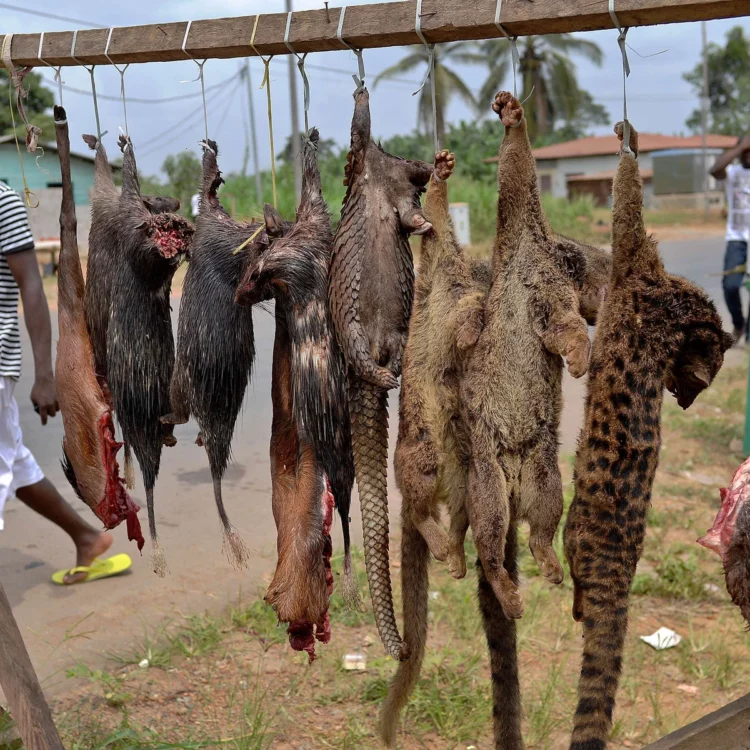As the world marks World Zoonoses Day, Wild Africa has called for urgent and consistent actions to reduce the risk of future pandemics by curbing the illegal bushmeat trade, expediting the passage of the new wildlife bill, and protecting natural habitats.
LEADERSHIP reports that Zoonotic diseases, also known as zoonoses, are infectious diseases that can be transmitted from animals to humans. They include Ebola, Mpox (also known as Monkeypox), Lassa Fever, and COVID-19 — all of which have affected Nigeria in recent years.
According to the World Health Organisation (WHO), 75% of emerging infectious diseases in humans originate from animals, with 71.8% emerging from wildlife.
In Nigeria, the illegal bushmeat trade, particularly in endangered species like pangolins, bats, monkeys, and snakes, persists in open markets and on roadside stalls.
While bush meat is considered a source of animal protein in remote communities, its increasing demand in urban areas such as Lagos, Abuja, and Port Harcourt is cause for concern.
“World Zoonosis Day is a reminder that protecting wildlife is protecting ourselves. By embracing the One Health approach, which unites human, animal, and environmental health, we can break the chain of zoonotic diseases. I call on policymakers, communities, and individuals to join hands in preserving Nigeria’s rich biodiversity, halting illegal bushmeat consumption, and investing in sustainable alternatives for those who depend on it,” said Dr. Mark Ofua, the West Africa representative.
Experts say education and enforcement, not just vaccines, are our frontline defences.
Wild Africa implores the Nigerian populace to cease the sale and consumption of bushmeat, joining the concerted effort against it.











